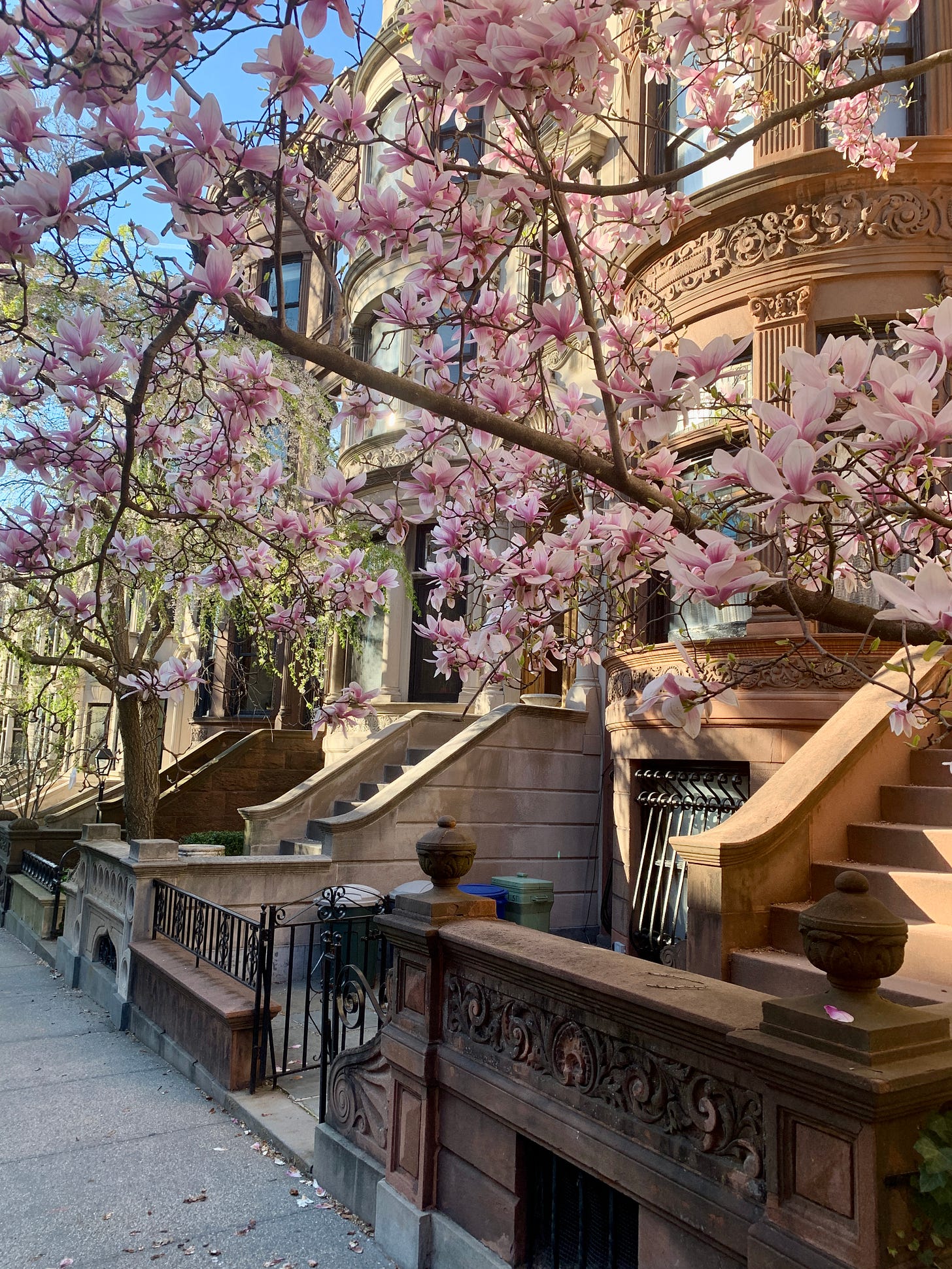Welcome to Under the Oaks, a quiet place to sit and read in the Land of Oaks and Roses.
A lot of us are thinking about what we want. Goals, resolutions, intentions…all of these words are about wanting. I think we use them because we live in a culture that doesn’t like wanting. We don’t like when people want too much. Or when they want the wrong things. And we especially don’t like when those people are women.
I’ve noticed that whenever I want something an inner voice quickly responds with a counterargument. “Is it right for you?” or “are you sure?” it says. This could be the internalization of society’s animosity towards wanting women. It could also be a defense mechanism. It’s hard to think about the things I’ve wanted for years but haven’t gotten. Shooing a want away is easier than the distinct sting of disappointment.
There’s another hard thing about wanting too. It’s become more and more challenging to know what it is that we actually want. We live in a world that floods us with images and messages that want us to want things. Do we really want all of these things or are we just seeing them a lot? It’s really hard to know. There’s also all the things that other well-meaning people want for us. We’ve all had the experience of getting the thing they told us to, and then realizing that we didn’t really want it. It takes real skill to distinguish between the wanting that constantly floats around us, and the wanting that originates from somewhere inside ourselves.
There are a lot of good reasons to be skeptical about what we want, or not know what we want entirely. But, our wanting is worth exploring because it carries information about who we are. The better I’ve gotten at wanting what I want, the better I’ve gotten at knowing myself. The things I want teach me about joy and need. Wanting allows me to explore the feelings I’m really after. I’ve learned that there’s space between the wanting and the getting. And that space is filled with devotion, growth and love. The things that I truly wanted changed me, even when I didn’t get them. They are a tap on the shoulder. They interrupt the status quo and point in new directions. A want is a mark on a map.
If you’re curious about being a better wanter, observe kids. I surprised my daughter at school last year to celebrate her birthday. I brought cupcakes and paper plates in three colors: pink, green and blue. My daughter was tasked with passing them out. I watched as she went around the room, spreading out the plates as wide as she could in her small hands so that each classmate could see what their choices were. Each child very carefully, and slowly, surveyed their options before making a decision. When they did they shouted their choice for the room to hear: “I want blue! Blue is what I want!” Every color choice seemed to not only say “this is what I want,” but also “this is who I am.” It was as if the colors were celebrations of themselves. And we all know what happens when a kid can’t have what they want. Tears! Collapsing on the floor. After many unsuccessful attempts of addressing this frequent scenario with my own kids, I’ve learned what to say to calm their devastation: “It’s important to know what you want even when you can’t have it.”* It works because it’s true. For us too.
Do you want to know something I really want and might never get? I really want to live in Brooklyn again. We live in a place that I love now, so I’ve waited for this wanting to change. It hasn’t. Whenever I think about wanting Brooklyn, I think about this story I heard
tell years ago. She described a mother with no ability to go on an Eat, Pray, Love journey to discover herself in the way that she had. Instead, she kept a jar in the back of her closet for the journey she hoped to go on one day. Throughout her life, she dropped coins in her jar. She couldn’t have her trip, but she could have a relationship with it. She spent time in the fertile space between the wanting and the getting. She got to have all the gifts that come from it: devotion, hope, stamina, zing... She began to understand the feeling she hoped this trip would give her. She figured out how to start feeling that way anyway. She realized that wanting something and not having it is it’s own journey worth traveling. This is what wanting Brooklyn has taught me too.What if we don’t need to decrease our wanting? What if the real work is creating a better relationship with it? What if this relationship brings things into being? And if we do get what we want, can we receive without apology? It’s worth noting that many of the things I have now are things I wanted for years without having. Those years turned me into a different person. The type of person who learned that wanting is not only allowed, but a necessary component of a whole self. Here’s to everything you want in 2024, even if you can’t have it.
* I’ve been saying this line for so long that I can’t remember where I got it from although I know that I didn’t come up with it myself. I’m guessing it’s Dr. Becky.






Olivia, Appreciate your delving into this topic. Your writing is refreshingly honest and reflective. Wanting is a place, a sense of home not just an object, a pair of shoes or a trip.
Love this!